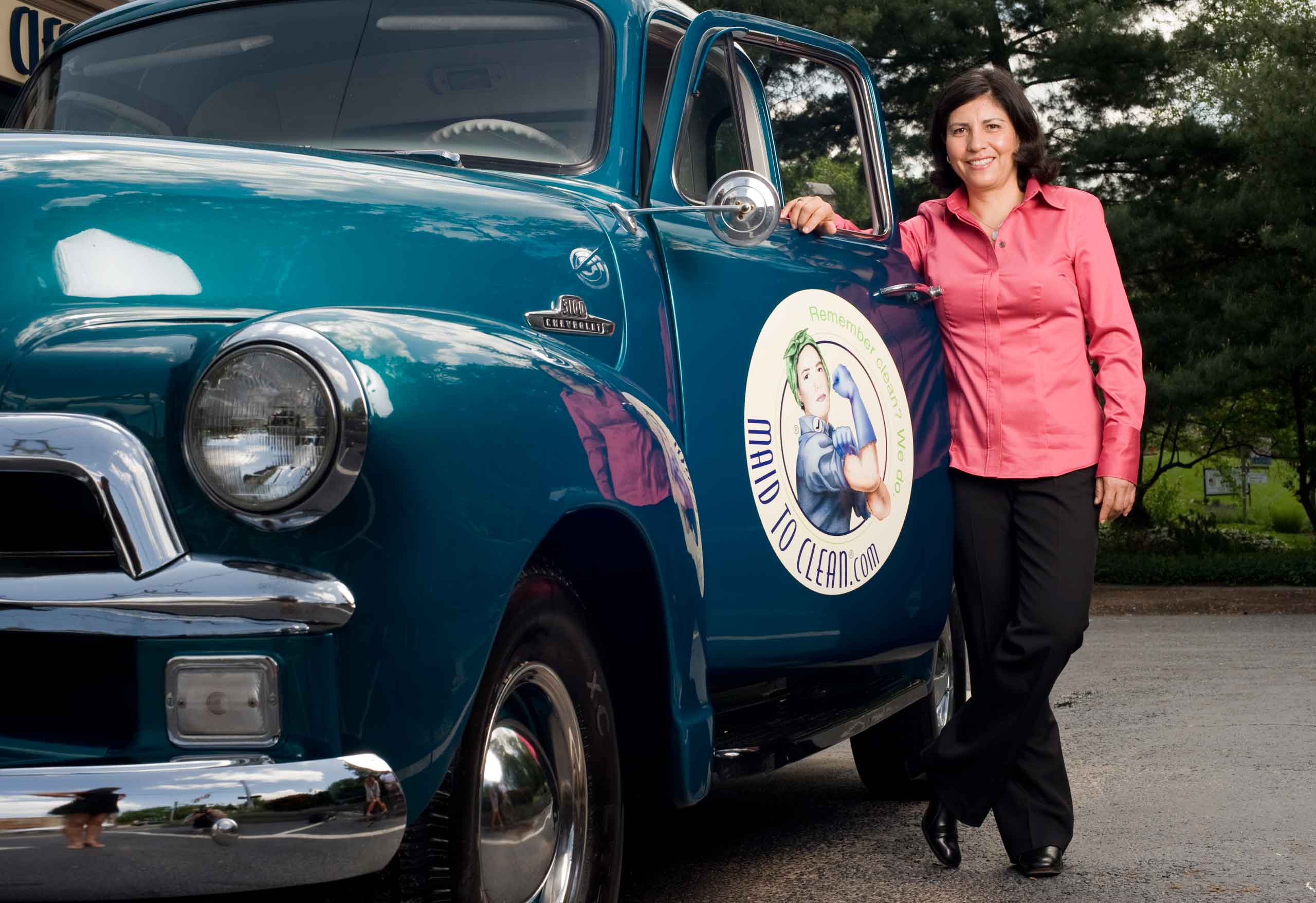Originally Published in the Washington Business Journal
Cinderella Bermudez had no doubts that her company, Maid to Clean, would survive the darkest days of the pandemic. Even when she and her management team decided to send employees home and stop cleaning houses, she never questioned that they would all pull through.
Part of her confidence comes from her beliefs’ manifestation.
Along with telling her roughly 50 full-time employees not to worry because she would make sure they are taken care of, Bermudez also told them to “set their intentions” and “raise their vibrations.”
“The solution to any problem is there, I just have to be open to it,” she said. “I’m not spiritual as in religious, but I do believe the universe provides.”
If you believe in “earth energy,” which Bermudez does, her birth name destined her for a life of cleaning. But she had to control where it would go. She’ll tell you she grew up “dirt poor” with her grandmother and her aunts. True to her fairy tale name, they could be tough. When caught drinking as a teen with friends, one of those aunts punished Bermudez by taking her to clean a house all day.
“‘If you don’t straighten up you’ll be cleaning all your life,’” Bermudez, now 59-years-old, recalled. “Sometimes I still chuckle. Yeah, I guess I am still cleaning.”
She left a career in hotel management to launch Maid to Clean in 1996. She cleaned a lot of houses and eventually built a solid staff and a handful of managers she trusts to run the day-to-day. Prepandemic, the company had well over 200 clients.
But, outside of the metaphysical, Bermudez built her Alexandria-based business with some sound business principles in mind — work hard, keep debt low and be cost efficient.
So when Covid-19 did strike, Maid to Clean had just a few large monthly expenses to worry about. It owned its building and cars. And managers had always shopped smartly for cleaning equipment.
One principle Bermudez has insisted on for everyone in the company was making sure the client was happy. That turned out to be critical because — while Maid to Clean waited for a loan from the Small Business Administration’s Paycheck Protection Program and before it secured money from an Alexandria Back to Business Grant — a number of customers continued to pay for the service even though employees weren’t on the job.
Roughly 20% of the company’s customer base chose to continue to pay for the month of April, said Daily Hernandez, Maid to Clean’s business manager. “That really helped us stay stable for the month we were completely closed. Many of them have been clients for years, as far back as 1996.”
Maid to Clean returned to work in June with initially just 35 employees and increased that to 40 by August. Of course it meant changing how they clean, Hernandez said.
Employees are temperature checked before they go into work. Clients either leave the house or stay in just one room while they clean. Equipment has to be sanitized before and after going into a home.
About 80% of Maid to Clean’s customer base has returned, and Hernandez is hopeful that by the end of the year it can get back to normal client levels.
For, Bermudez, whose all-female management team handles the operation, the experience has so far been a confirmation of both her understanding of how the universe works and the business lessons she’s impressed upon those at Maid to Clean.
“I always talk about how important the client is. After 24 years, I can hear it in their voices. ‘Yeah, yeah, the client is No. 1,’” Bermudez said. “But now when I have a meeting with them, I ask them who gave you money? Who was looking out for you? When I say the client is important I mean it, and they didn’t forget about you.”
